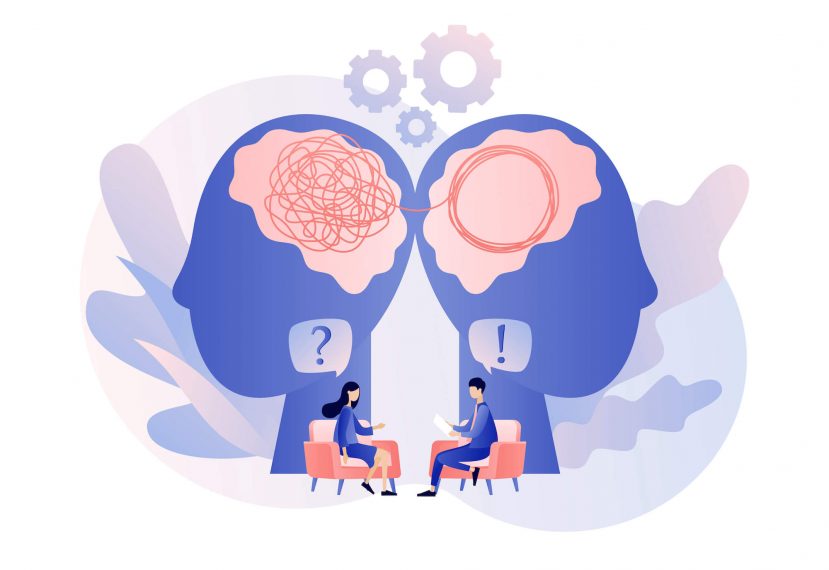"Can I heal from transference
on my own?"

Dr. Susan LaCombe, 30-Year Veteran Psychologist & Rebel Shrink
August 12, 2024
Can you heal from a transference on your own?
I grappled with this question for many years. As a consultant to clients struggling through lengthy transferences, I knew it was definitely possible to overcome.
However, could these same folks have done so on their own? I won't say it's an easy 'walk in the park'.
However, I can now say it is doable. Yes, if you are suffering from an entrenched transference, it may be possible to overcome when you know how.
Of course, I can't make a guarantee. There's little research in this area and very few programs that offer real change. (I was inspired to create this post by a visitor to myShrink.)

Lost and Curious, Illinois, USA
Can I achieve healing on my own?
I'm really confused with this whole transference issue. I recognize that I'm having very strong transference feelings for my therapist right now... and I also recognize that I've done this in the past with other people as well -- where I feel an overwhelming attachment for no logical reason.
It is very painful for me because I feel sooo dependent. I'm finding any excuse I can to have a reason to contact him between sessions... and find that just a simple phone call or e-mail from him can literally turn my day around. But when I don't have any contact, each day between sessions seems to last forever. This is not a healthy way to live!.
I also recognize that I seem to have all the major pre-disposing factors to this: Early childhood neglect, mom died when I was six, neglectful / abusive family dynamics after that.
Here's my question though... is there any way to work through these feelings and achieve healing on one's own?!?
Two reasons I ask.
One is that I'd be mortified to bring up the intensity of the feelings with my therapist. I know where they stem from, and I know I'm not 'in love' with him, etc... but I'd be really embarrassed to talk about this and I don't know how he'd react. I'm also quite worried that he'd take steps to eliminate any extra contact with me so as not to make the problem 'worse'...but in so doing it would remove the little bit of comfort I get from that extra contact!
The other reason is that my husband is really getting unhappy with the amount of money spent on therapy and does not want me to continue if at all possible. He won't absolutely prevent me... but he does not see the value for the money, and feels that normal, relatively healthy people (which I do consider myself to be) do not need this.
I can see his point... and I almost see it as an addiction... I'm willing to pay almost anything in order to have time with my therapist... because of these transference feelings... so how do I get out of this loop?!??!? I recognize the source... I feel the pain... how do you go from feeling to healing?
Lost and Curious (Illinois, USA)

Shrinklady
Hello Lost and Curious
Thank you for your detailed post. I can sense the distress in your words, and I appreciate how daunting it must feel to even consider discussing these intense feelings of transference with your therapist.
First, I want to acknowledge that these impulses are not only real but have their own "logic" at another level. In essence, your brain is attempting to "fill the gap" in your emotional development. It's craving a very specific experience to resolve unmet needs from your past.
While it's distressing to feel so dependent, I encourage you to extend compassion to yourself. The feelings you're experiencing are as real and vivid as they were during those early years of neglect or abandonment. Often, these feelings stem from experiences that occurred before you could even articulate them.
You asked if it's possible to work through these feelings on your own. The answer is yes, it is possible, but it does require consistent work and a specific approach.
Here's the reality: resolving transference is about "moving through" the feelings rather than avoiding them. Avoidance might seem like the safest route, but it keeps the underlying issues unresolved. Facing these feelings head-on, however uncomfortable, is where true healing lies.
Of course, that's just the beginning.
One key element to understand is that "thinking differently" about your transference or your therapist won't create the change you're seeking. To change the way you feel, you need to rewire your brain, and that requires having new, embodied experiences.
Let me give you an example. Imagine feeing embarrassed—an emotion with deep roots, much like transference. If you experience shame, you may instinctively want to hide. But if you're met with warmth and understanding in that moment—your nervous system can diminish the power of that trigger.
The challenge with transference is similar. You don't necessarily need to discuss these feelings in-depth with your therapist, but you do need to work through them in a way that allows your brain to experience something new.
This means engaging both your mind and body in the process, and being consistent in your efforts.
The good news is that you can begin this work on your own. When those feelings of dependency arise, recognize them as your brain's way of trying to resolve old wounds. Allow yourself to feel them, and provide a sense of safety and compassion in those moments.
Of course there's more involved but basically these consistent small experiences can lead to a profound shift, helping you to move through the transference and finding freedom from these painful feelings.
In summary, to change these pathways, you have to create new ones by repeatedly creating a different experience, even when that experience begins with discomfort. It's a process that requires patience, consistency, and a willingness to engage both your mind and body in the journey.
That's therapy results without therapy.
Shrinklady
P.S. By the way Lost and Curious, I beg to differ with your husband's view of what constitutes "normal" healthy people who need therapy. Just because we have a job and are in relationship, doesn't mean we're functioning optimally.
In fact, as I have explained in other places on this site, the opportunities available to us through therapy are boundless. Therapy isn't just about regulating the negatives, it's about learning how to tolerate the expansion of positives.
Personal Musings
I want to be encouraging to Lost and Curious. I want her to keep working on resolving her transference as I know there's many more benefits when it is worked through.
That is, not just in getting rid of a transference but eliminating several other limitations that are often associated with it.
However, the reality is that the brain requires specific conditions in order for change to be lasting. I spoke only of one in this post albeit the most important one.
When one has a transference, it's also the case that your nervous system capacity is lower. In this condition, you won't be able to move through the necessary feeling states if your capacity isn't increased.
Not to mention, that the task of creating experiences for your brain to learn from requires a certain skill set that if she doesn't learn this beforehand, she's unlikely to achieve her goals on her own.
It's that "expanding into positives" that gets me most excited 🙂
If you're finding these ideas similarly exciting and you'd like to learn how to move through a transference—regardless if you're in therapy now or not—discover how my program can help.


